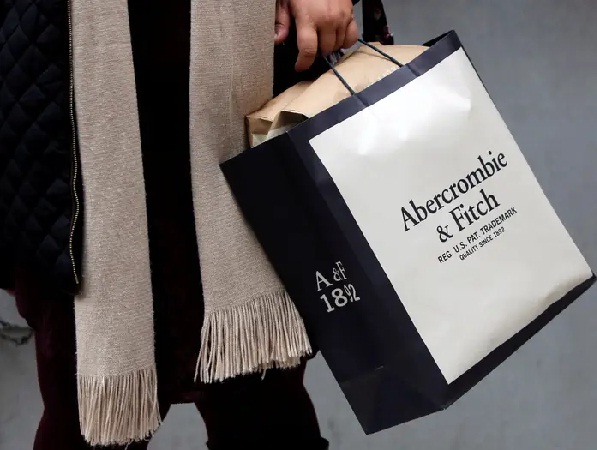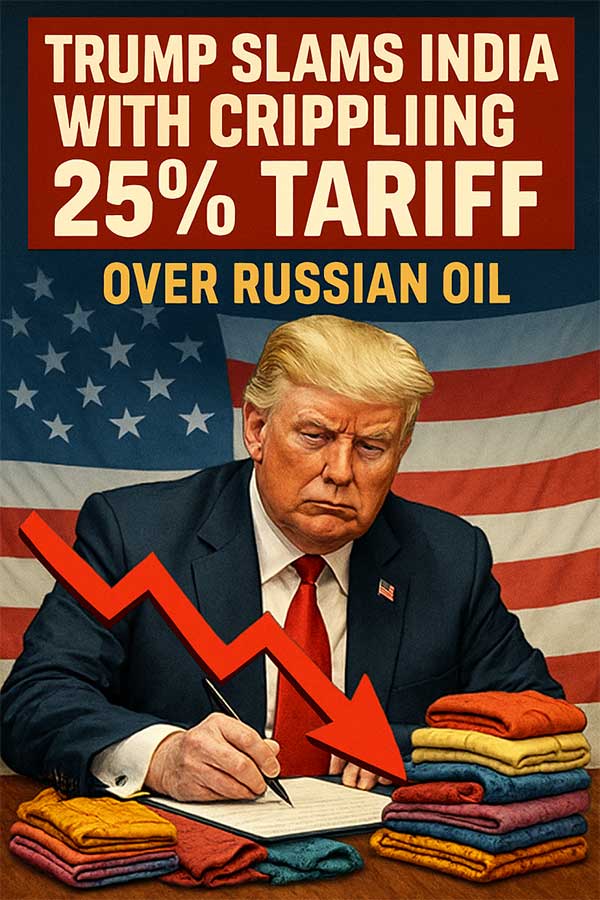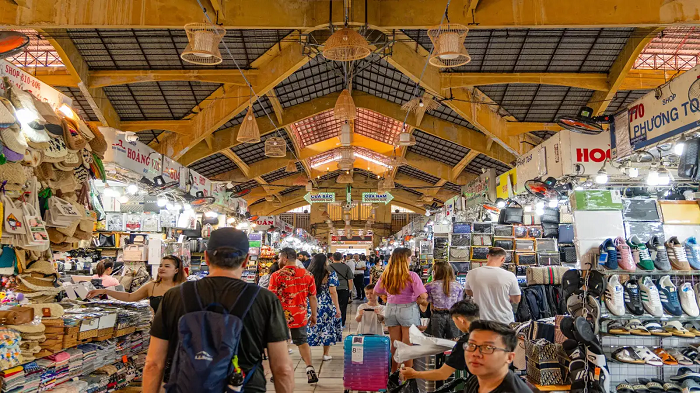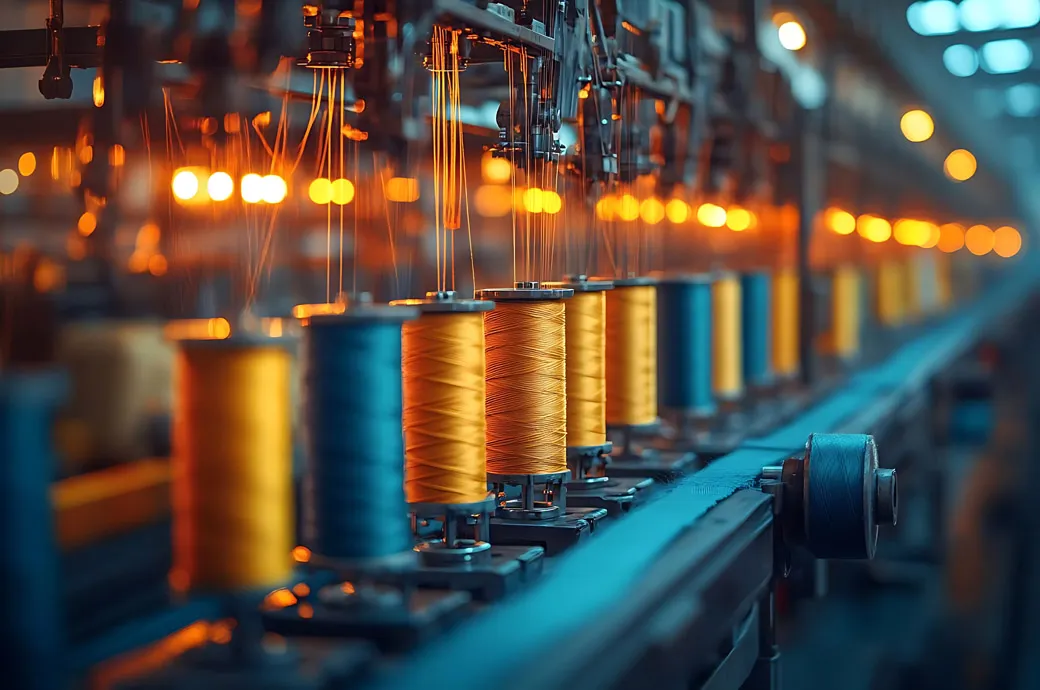
Popular brand across the US in early 2000s and 2010s, Abercrombie & Fitch is making a comeback with renewed focus on sustainability. The brand’s debut on TikTok with the hashtag #aberchrombiehaul has already garnered 72 million views. As per a report by a content management company Brightly, Abercrombie & Fitch Co, announced its sustainability goals in 2019. The goals focused on three areas: product development, global home office and global stores. In line with these goals, Aberchrombie &Fitch Co has already sourced 100 per cent materials from Responsible Down Standard certified sources. It also sourced 13 per cent cotton through Better Cotton, and aims to increase this to 25 per cent by 2025.
Failure to achieve 100% sustainability
Many of Abercrombie brands are also involved in fashion resale. They have partnered with thredUP to recycle gently used women’s and children’s clothing items. However, the company is yet to achieve its goal of sourcing 100 per cent linen and wool from responsible sources. It has also failed to increase the use of recycled polyester to 25 per cent and expand workers’ capacity to 50,000.
Reducing food and paper waste
Abercrombie & Fitch Co has also achieved few of its global home office goals. The company recycles 100 per cent cardboard, e-waste fabrics and denim scraps across the board. It plans to reduce waste by 50 per cent by 2025.
Waste reduction goals include reduction in food and paper waste. To achieve this, Aberchrombie & Fitch has partnered a service provider for composting food waste. It also printed 86 per cent less pages during 2021 to curb paper waste. Now, the company is training associates to deal with human trafficking and hopes to achieve 100 per cent success by 2025.
Managing carbon emissions
Operating 730 stores globally, A&F Co aims to recycle 100 per cent garment polybags used in these stores and also 100 per cent of other hazardous waste in domestic stores. The company also aims to reduce carbon dioxide emissions. It has already decreased these emissions from 128,830 metric tons in 2019 to 84,710 metric tons in 2020.
In 2021, Abercrombie & Fitch improved its transparency score to 21-30 per cent in the 2021 Fashion Transparency Index. The company plans to be more transparent in its policies, procedures, and social and environmental goals; though it may not disclose the outcome of supplier assessments. It is also yet to launch an eco-friendly apparel range.
Despite recent sustainability initiatives, Aberchrombie & Fitch continues to be a fast fashion company. The company is slowly transitioning to more eco-friendly practices, such as using recycled materials and working to decrease carbon emissions. However, it still needs to step up efforts to lessen the impact of climate change on our planet.

From brick and mortar stores, fashion retail is moving towards fast and decentralized world of e-commerce. Consumers are opting for new ultrafast sales model as it is faster than fast fashion. Retailers like Boohoo, Asos, Shein and Missguided are gaining traction with their ability to match supplies with changing demands, says a Apparel Resources report. New styles are being launched within days as against weeks earlier.
Online platforms’ score with full inventory display
One factor working in favor of ultrafast fashion retailers is their ability to cater to consumers’ changing demands. Retailers create in-demand dresses within 10 days or a week. Some are also launching new designs in real time. Being online-only channels enables them to show all their offerings at one go. It also enables them to introduce tempting and trendy offers to boost sales. For instance, Asos introduces over 4,500 offers each week. Shein launches around 1,000 styles everyday on its site.
What’s more these retailers use advanced data analytics tools and centralized communication platforms to meet demand. Social media is used productively to meet brands’ goals. AI image recognition tool are being used to study fashion images. It helps retailers collect information about particular components and attributes of these images, and use machine learning algorithms to forecast future trends.
Enhancing connectivity through social media
Influencers are being roped in while advertising on social media channels are done to improve consumer connect. Shoppers’ on mobile apps or online are collected to personalize their shopping experiences. Working on a central platform enables them to get a complete view of orders placed by customers. Through this, they can implement short-term production change more quickly and effectively.
Flexible inventory management enables retailers to produce small batches of inventory and monitor the performance of each style in its catalogue. This data helps retailers know styles most in demand and customize production accordingly.
Nearshoring enables them to deliver products quickly and at affordable rates. For instance, most of Shein’s fabric and garment suppliers are based in Guangzhou, where several thousand manufacturers make clothes. Boohoo also makes most of its clothes in its home country, the UK.
Improving bottom lines
Focus on local manufacturing, on-demand production, inventory management and faster deliveries enables ultra fast fashion retailers to improve profits. Boohoo expects full-year profits for 2022 to reach £125 million as sales have grown 61 per cent from its pre-pandemic levels. Asos also expects FY ’22 revenues to surge 10 to 15 per cent and adjusted profit before tax to range between £110 million and £140 million.
Panned for unsustainable operations
Despite quicker turnaround times, fast fashion retailers continue to be criticized for their unsustainable production models. These retailers are known to dump over half a million tons of unwanted garments in landfills every year. The volume of their garments being thrown away every year has doubled over the last two decades.
Fast fashion retailers are also known as one of the largest emitters of carbon dioxide. They are also often accused of exploiting workers for producing garments quickly and at affordable rates. Given this scenario, how ultrafast fashion retailers perform, remains to be seen.
Reebok and Sports Illustrated owner Authentic Brands Group plans to takeover British fashion retailer Ted Baker.
Ted Baker has 376 stores worldwide and its own lines of running shoes and athleisure wear for both men and women.
Investing in well-established properties is no stranger to ABG, which owns fashion, athletic apparel, and equipment brands Nine West, Prince Sports, Tapout, Volcom, and others.
In January, ABG reportedly purchased a 55 per cent stake in David Beckham’s DB Ventures for $271 million. DB Ventures controls the soccer star’s deals with Tudor watches and Haig whiskey. In March, ABG completed its acquisition of Reebok from Adidas in a deal valued at $2.5 billion.
In January, ABG canceled plans for an IPO, according to an SEC filing. Instead, the conglomerate raised money through private sources and is valued at $13 billion after an investment in November 2021 from CVC Capital Partners and HPS Investment Partners.
The company still plans to go public, but will likely do so in 2023 or 2024, says Jamie Salter, CEO.
The textile mills in Tamil Nadu are expecting a reduced price for Cotton yarn that is to be announced in May.
Presently, the price of cotton yarn in Tamil Nadu for all varieties is in the range of Rs 400 per kg.
The cotton bags have started arriving at the Mulanur cotton market in Tiruppur district from various parts of the state like Dindigul, Tiruchi, Erode, and Coimbatore.
MDinakaran, Senior Superintendent, Mulanur Cotton Market, in the past few days, more than 10,000 bags of cotton have arrived in the Mulanur market. Each bag contains 30 to 40 kg of cotton and the arrival of cotton in huge volume is expected to reduce the price of yarn which will give a big boost to the textile industry.
He said that during the same period last year, only 7,000- 8,000 bags had arrived in the Mulanur cotton market in a week.
Generally, cotton arrival commences from May - June months, but this year, the cotton has started arriving from April 1 and with good rains, farmers have started cultivating cotton in good volumes.
Bangladesh Garment Manufacturers and Exporters Association (BGMEA) and the-based CNN International Commercial (CNNIC) plan to collaborate to promote Bangladesh’s RMG sector by showcasing its success stories in the international arena.
The willingness was expressed during a meeting between Faruque Hassan, President, BGMEA and a team of CNNIC in the presence of Nasrul Hamid, state minister for power, energy and mineral resources, at Dhaka.
The CNNIC team included James Hunt, Senior Vice President, Head of Global Client Solutions; Robert Bradley, Senior Vice President and Head - APAC, LATAM AdSales and International Digital Strategy; AbhijeetDhar, Director, Sales and MeherAnand, Account Manager.
They discussed how BGMEA and CNNIC can collaborate to present Bangladesh’s RMG industry’s success stories to the global audience, especially by portraying the enormous contribution of the industry in driving Bangladesh forward.
Their discussion also covered how CNNIC could support in telling the impressive stories of Bangladesh’s garment industry, along with its strides in the areas of workplace safety, environmental sustainability and workers’ wellbeing.
Hassan apprised the CNNIC team of the upcoming event ‘Made in Bangladesh Week’, scheduled to be held at Dhaka in November 2022.
Egypt's cotton production may rise by 14 per cent in the marketing year beginning August 2022 through July 2023, says the US Agriculture Department said.
Production is expected to increase to 320,000 480-pound bales from 280,000 bales this year. The area harvested is forecast to grow to 97,000 hectare from 85,000 hectare.
Higher demand in 2021--which has remained high into 2022--and a surge in prices, have encouraged farmers to plant cotton, the report said.
Prices in Egypt have increased nearly 100 per cent this year, with the upper-long staple varieties at 5,000 Egyptian pounds ($269.32) a quintar. A quintar is 50 kilograms of lint cotton. Lower-long staple cotton reached EGP3,000 a quintar, it said.
Domestic consumption is expected to drop by 9 per cent, to 500,000 bales this year, and imports are forecast to remain unchanged at 550,000 bales in 2022-23.
The country plans to set up the world's largest spinning and weaving factory in Mahalla al-Kubra, at a cost of about EGP900 million.
Leah Swan, Chief Operating Officer, The Children’s Place is set to retire from June 1. Swan joined The Children’s Place around six years ago and currently oversees IT, logistics, store operations, real estate, legal and other areas, including social and environmental responsibilities. As per a Retail Dive report, the pandemic hit The Children’s Place hard as it led in financial and operational losses. By last fall, however, the company recovered its financial health, as seen from RapidRatings data.
Last year, the company’s sales not only bounced back from 2020 but surpassed 2019’s sales as well. The pandemic accelerated the company’s long-running digital transformation, notes Jane Elfers, CEO. Its digital sales in the fourth quarter grew by 48 per cent of the total sales, compared to 31 per cent in 2019.
Paolo Gnutti, CEO, PG Denim Project and Denim Consultant have joined hands with global denim manufacturer Isko to launch a new fabric collection called ‘Isko Luxury By PG.’ As per The Spin Off reports, the collection will be unveiled at the Denim Premiere Vision in Berlin, on May 17-18. The collaboration aims to focus on creating a new collection based on Isko's technology in the world of sustainability and PG's creativity and innovation, says Gnutti. It will primarily focus on fabrics though it will also offer other collections.
The initial focus will be on countries where the luxury segment is more prominent such as Italy, France, the UK, Germany, the US and Japan, says Marco Lucietti, Director-Strategic Projects, Sanko Holding Isko Division. And adds working with Isko will ensure a sustainable collection for the company as per its DNA. The PG world will bring creativity, while respecting at the same time the use of sustainable materials.
Together, we aim to bring to the market a highly sustainable, luxury collection. Our motto is to offer Responsible Luxury' which helps us cater to a luxury but conscious consumer, adds Luceitti.
Revenues of RMG manufacturers in India are set to grow on account of supply chain disruptions in markets such as Sri Lanka and harsh pandemic-induced lockdowns in China. As per a CRISIL report, RMG revenues could grow 16-18 per cent this fiscal. Manufacturers may also witness higher apparel sales with rise in domestic demand and discretionary expenses.
Domestic RMG demand is expected to grow 20 per cent, says Anuj Sethi, Senior Director, CRISIL Ratings. Meanwhile, export demand will grow around 12-15 per cent, despite the higher base of last fiscal, as overseas players continue to diversify their supplier base. Following Sri Lanka’s crisis, Indian apparel exporters have been receiving orders from the UK, European Union, and even Latin American countries. This will boost operating margins of RMG makers by 75-100 basis points year-on-year to 7.5 per cent-8.0 per cent this fiscal, adds Sethi.
CRISIL analyzed data from 140 readymade garment makers with aggregate revenues of Rs 20,000 crore. The ratings firm, however, said, a rise in raw material prices such as cotton may hike apparel prices.
Istanbul Apparel Exporters’ Association (IHKIB) aims to enhance competitiveness of SMEs in the apparel and textile sectors by increasing their digital capacities and providing environmentally friendly solutions. As per an International Apparel Federation report, established within the scope of the project, The Digital Transformation Center, in cooperation with Istanbul Fashion Academy and İHKİB, provides digital transformation services in the sector besides planning new training courses in fashion design and presenting them to designers and SMEs, with the competencies acquired in the digital field. Established in 2017, Istanbul Fashion Academy (IMA) will play a crucial role in order to keep these trainings sustainable. The project will focus on raising awareness of the sector in the field of social responsibility and conducting pilot applications.
The project will develop new methods to detect harmful particles threatening both human and the environment in the content of textile products. It will conduct research and development studies on methods to test Organic Turkish Cotton. EKOTEKS Laboratory established by İHKİB in 1998, will be strengthened by the use of technological products and the development of new analysis methods in more eco-friendly environment.
- 1
- 2
- 3
- 4
- 5
- 6
- 7
- 8
- 9
- 10
Waste Not, Want Not: How Britain’s textile recycling hub will reshape its econom…
The United Kingdom is all set to rewrite the future of fashion waste. In a bold, future-facing move the country... Read more
Elite consumers power luxury market amid global slowdown, highlights BCG Report
As the global luxury industry confronts its first major slowdown in over a decade, a quiet but powerful transformation is... Read more
Trump's Tariff Shock: Indian apparel industry faces exodus as US buyers demand r…
In a dramatic reversal of fortune, India's apparel industry, once poised for growth amid a changing global trade landscape, now... Read more
From Texas to Dhaka, cotton’s route rewritten by trade and tension
In the sprawling fields of West Texas and the ginning factories of Gujarat, tremors of geopolitical unrest are being felt... Read more
Trump slams India with crippling 25% tariff over Russian oil, Indian textile ind…
In a dramatic escalation of global trade tensions, U.S. President Donald J. Trump today signed an Executive Order imposing an... Read more
Circularity in fashion hits a plateau, reveals Kearney's 2025 index
A new report from global management consulting firm Kearney suggests that while circular fashion has become a mainstream ambition, the... Read more
From Seoul to São Paulo: How Gen Z is driving a genderless fashion future
From the minimalist ateliers of Copenhagen to the neon-lit youth districts of Tokyo, unisex fashion is no longer a fringe... Read more
Time to Lead, Not Follow: Textile industry must become a national priority, says…
In a visionary address at the Textile Leaders’ Conclave 2025 in Ahmedabad, Kulin Lalbhai, Vice Chairman of Arvind Ltd., called... Read more
Fashion flows shift, Vietnam and UK drive growth as others stall
The global apparel trade and retail sector continues to evolve, balancing between post-pandemic recovery, macroeconomic uncertainties, and changing consumer behavior.... Read more
Inflation, wages, and green mandates, what’s unravelling Türkiye’s textile domin…
Once celebrated as a textile stronghold bridging East and West, Türkiye’s garment and textile sector now faces numerous crises. From... Read more












